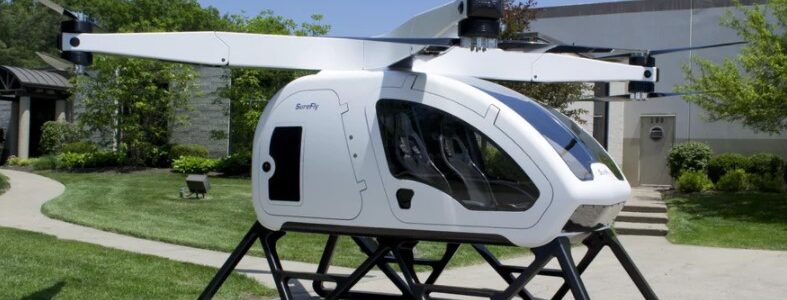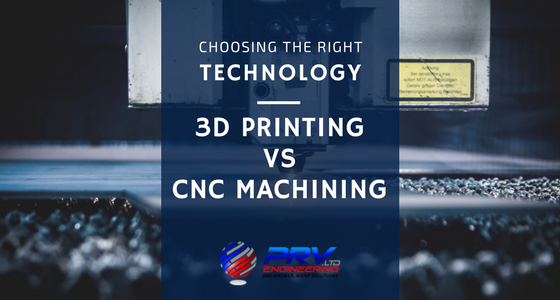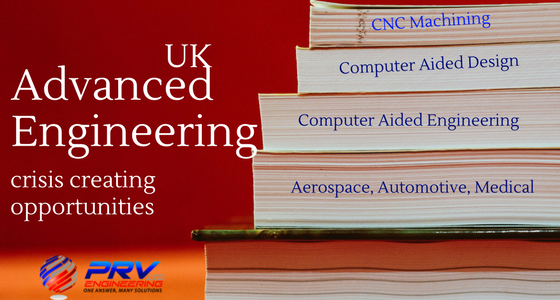The first ever electric plane was recently certified and flown in Australia marking an exciting frontier for electric aircraft. Australian sustainable aviation company, Electro.Aero, is at the forefront of electric aviation technology. They are responsible for the test flight after obtaining certification for the Alpha Electro from the Australian Civil Aviation Safety Authority late 2017.
About prvengineering
- Email: Rob.thomas@wsi-emarketing.com
- Nice Name: prvengineering
- Website: https://www.prv-engineering.co.uk
- Registered On :2024-09-18 08:23:17
- Logged in as: prvengineering
prvengineering Posts
Reflecting back on 2017 we saw a number of engineering trends making their mark in a big way. Some include advanced robotics, additive manufacturing, IIoT, quantum computing and big data. Even though it’s possible to identify hundreds of minor developments, what are the major engineering trends to follow in 2018? Take a look at these top trends we put together to end the year on a positive note.
A glimpse into the future of mountain rescue could mean replacing the image of our furry friend, the St Bernard. No surprise really as technology is forever advancing and with that, an unmanned aerial vehicle (UAV) made from carbon fiber with a 2.2 meter wingspan.
A team of students at the prestigious University of Warwick School of Engineering in Coventry, England, has designed an unmanned aerial vehicle. The core concept is to deliver immediate aid and equipment to people in need before a rescue team arrives. These UAV’s will essentially be the first responders.
This year has flown by and we’ve seen some truly spectacular engineering innovations from across the globe. Reflecting on 2017, the biggest winners include renewable energy technologies, quantum computing, SpaceX reusable rockets, drone technology, medical breakthroughs, robotics and floating train tracks.
Once thought of as impenetrable, technology is now breaking barriers. Think about how far we’ve come in just the last 10 years, not to mention since the first moon landing. We have autonomous ground and air vehicles, we’re able to explore the vastness of space, teach our kids how to build robots and nanobots targeting cancer cells. We really are living beyond imagination!
Unlike some industries, UK manufacturing has grown to new heights throughout November and has defied all odds. Industries performing particularly well include the automotive sector, the steel industry and shipbuilding.
Overall, production is on the rise to the highest it’s been in four years; new territories with a significant increase in exports along with the highest employment growth in over three years. And according to a report from the Office for National Statistics (ONS), the UK’s industrial sector has increased by
The most promising digital technologies of recent times have been virtual reality (VR) and augmented reality (AR). The concept may have been around for some time but the technology is still very much in its infancy. That being said, many manufacturers have started exploring the benefits augmented reality can offer in a manufacturing environment. We also know it will have a significant impact on the industrial sector within the next few years.
Engineers are always in high demand and none more so than in advanced engineering. Looking to the future, the industry will need about 186 000 engineers by 2024. Another report, according to The Telegraph, suggests the UK is grossly lacking skilled engineers and would need 1.8 million new engineers and technicians by 2025.
Whichever way you look at it, these are big numbers to swallow. Engineering is not only central to ensure economic growth, it plays a vital role in global challenges. Among these are climate change, food security, health and safety, biodiversity, population and water security. Adding to the increased number of opportunities, engineering can yield significant financial reward.
The construction industry along with the architectural engineering are possibly two of the toughest marketplaces in the world. Fabrication projects are often both complex and demanding where the final product must have high integrity and capable of withstanding nearly anything. It’s also no secret that modern manufacturing and engineering have changed considerably in recent years. Companies now find themselves under pressure to rapidly introduce new products, adapt to local market conditions and improve quality, cost and efficiency.
We can agree that one of the main elements of any fabrication project is cost. And by cost, we refer to











Recent Comments